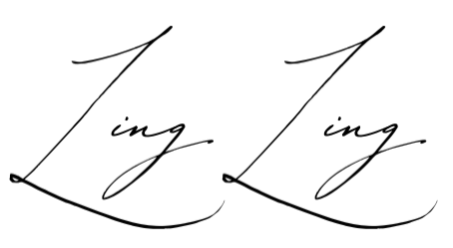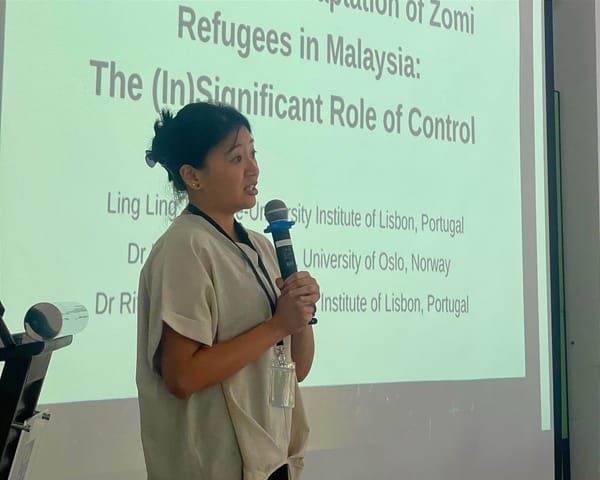What's The Big Deal With Social Diversity?
"The presence of difference" is one of the many definitions of diversity. In other words, a group of things or people with variation.

After moving into my new home, my ex-flatmate, a young Spaniard, sent a long text. During the pandemic, she learned about the blatant discrimination towards people of Asian descent globally. Distraught, she wrote a long message which ended with...
I just want to let you know that I'm aware of the issue, and I want to help to change it. No one deserves hate, and no one deserves to be treated this way. We are all human. I also want to let you know that if you ever need anything to talk, grab a coffee or just a call, please let me know. I'll do all I can. Please know that you have us here.
This message warmed my heart. Despite differences in ethnicity and age, we're the closest of friends. It acknowledges our diversity and demonstrates solidarity with one another.
What is Social Diversity?
"The presence of difference" is one of the many definitions of diversity. In other words, diversity is a group of things or people with variation. Biodiversity, geodiversity, and chemical diversity are some of the disciplines that use "diversity."
A quick Internet search shows many articles relating to social diversity. Social Diversity refers to differences among people. It can also mean that people identify with different social categories. Social categories encompass race, gender, age, disability, weight, religion, etc.
Even so, people don't think or relate to social categories in the same way. Depending on the context, specific categories are more emphasised than others. For example, weight rather than gender or age might be the primary concern in the fashion industry. Or in the workplace, gender over religion or race might be the main focus.
Why is Social Diversity important?
In the workplace, plenty of research discusses the benefits of social diversity. The diversity of employees is a competitive advantage for corporations and organisations. According to a McKinsey report in 2015, Why Diversity Matters,
- 35% more likely to have financial returns above national industry medians if the company is in the top quartile for racial and ethnic diversity
- 15% more likely to have financial returns above national industry medians if the company is in the top quartile for gender diversity
Diversity is a valuable resource for refining and redefining work processes, products, business strategies, etc. Diversity is a rich source of learning. Also, companies who wish to access diverse markets need the experiences and knowledge of a diverse workforce. By hiring employees with diverse backgrounds, employees will be better able to connect, relate to, and understand the needs of diverse customers.
Communities benefit from social diversity, too. For one, the lives of community members become enriched and colourful. We can learn so much from people of different backgrounds. When you interact and socialise, you get exposed to different living, working, relating, thinking, and much more. You get exposed to diverse perspectives, which can enhance your life.
For example, learning about different cuisines can give you additional ideas for cooking meals. Learning about Taoism from your Asian colleague can give you extra tools to manage work stress.
Not only that, social diversity also helps to build a balanced world. In a diverse community, different views provide and improve the balance of opinions. Exposure to different ideas teaches people to accept, embrace and integrate varying opinions. Also, it helps to broaden minds and open hearts. Doing so helps to reduce the fear of differences. Without different views, there is a tendency to amplify the fear of differences. Subsequently, this may allow extreme views to flourish.
Ultimately, social diversity is essential because recognising social diversity upholds justice. While times have changed, injustices are still carried out in different forms everywhere. Social diversity recognises that people inherit the burdens of past discrimination, trauma, injustices, etc.
It is a moral imperative to ensure justice and fair treatment for all members of society. No matter their background, everyone should have equal opportunities in work, education, and access to public services, among many other areas. This helps to reduce and eventually end prejudicial attitudes and discrimination. Everyone needs an ally or should become an ally to uphold justice.
Justice for Social Diversity
Social diversity, in itself, is neither good nor bad. Still, social differences are used to elevate the status of one group while suppressing another. Thus, social differences are linked to inequality and disadvantage.
The disadvantaged group members carry the emotional, psychological, and sometimes burdens of being a group member. These burdens come from historical oppression and systematic injustices.
For example, Indigenous women are less likely to use healthcare facilities for fear of discrimination and mistreatment. Indigenous women are more likely to die in childbirth than non-Indigenous population women in Panama and Russia.
In a socially just world, people are not victimised or discriminated against based on group membership. The well-being of everyone is upheld without the need to sacrifice the well-being of any one group.
Social justice exists when all groups in society are afforded the same rights and opportunities. Prejudice and discrimination no longer determine the life outcomes of different social groups. Every person is treated with dignity and respect by authorities, citizens and everyone else.
Social Diversity is a way of thinking and living.
Social Diversity means more than acknowledging cultural differences. We must recognise the inherited legacies of different social groups and strive to take conscious actions to establish social justice. We should start to reflect upon some practices that we can adopt in our daily lives.
- Identify discrimination in institutions, in communities and within ourselves. Recognise that discrimination sustains disadvantages for some groups and maintains privileges in others.
- Find ways to build relationships and network across cultural differences. Together, find ways to reduce and eliminate all forms of discrimination.
- Practice mutual respect for diverse experiences and the characters of others in our community.
- Appreciate the interconnectedness and interdependence of humanity and nature.
- Role model civility, humanism, respect, honesty, magnanimousness, and benevolence to everyone.
- Think of other ways to support the struggle of others and stand up to injustices.
Social Diversity is more than differences.
And so, social diversity is about differences. But it is much more than that. When we encounter someone different, they carry the burdens, consequences and experiences of hundreds of years of history. This can be a history of privilege or prejudice, of high society or societal marginalisation. Or it can be a history of unhealed trauma from war, oppression, or disasters.
We will not know, in its entirety, the struggles, triumphs, legacies or ordinariness of people who are different from us.
Understanding diversity is a good place to start, but more is needed. We all need to do our part to ensure social justice for everyone. What we can do is recognise each other's differences and struggles. We lend our support wherever and whenever we can.
Be kind, for everyone you meet is fighting a hard battle. Ian MacLaren
This post is updated from the originally published post on Culture Spark Global on 28 September 2021 and written by the same author, Ling Ling Tai.





